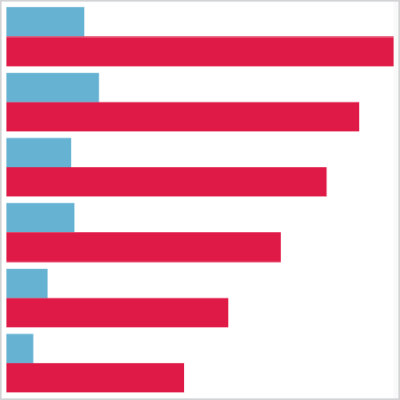Black and minority ethnic workers make up a disproportionately large share of key worker sectors in London COVID-19 chart series
7 May 2020

Key points
- As the COVID-19 pandemic has progressed, increasingly attention has focused on inequalities in who is at risk of exposure to the virus, including those required to continue working outside their homes.
- Key workers are those deemed necessary to the functioning of society in lockdown, and include those working in health and social care, food supply chains, and utility workers.
- Workers from black and ethnic minority backgrounds are slightly more likely to be working in a key sector, and disproportionately represented in health and social care and food production, process and sale sectors compared with key public services. This pattern is more pronounced in London than elsewhere.
Who are key or essential workers?
Key workers are those deemed necessary to the continued functioning of society during the lockdown, as defined by the government. Workers in these sectors are more likely to still be attending a physical workplace and so may be at a higher risk of contracting COVID-19.
How does the share of the workforce from black and ethnic minority groups vary by key worker sector?
The chart looks at the proportion of workers in each identifiable key sector, and non-key sectors as a whole, who are from a black or ethnic minority group, split by London and the rest of the UK. This allows us to see the key sectors where ethnic minority workers make up a disproportionate share of the workforce relative to other sectors. It should be noted that experiences will differ for different ethnic minority groups but we present findings for the black and minority ethnic population as a whole given sample sizes.
In London, workers from an ethnic minority group represent 54% of the food production, process and sale sector (including all food retail and processing) and 48% of the health and social care sector.
Outside of London, the sector with the greatest share of ethnic minority workers is health and social care at 13%, followed by food production, process and sale at 11%.
The health and social care sector in particular has experienced the most attention, given the higher risk of COVID-19 in these settings.
Overall, workers from an ethnic minority background make up 8% of the workforce of non-key sectors outside of London and 31% of non-key sectors in London.
How many workers in the UK and London are from ethnic minority groups?
In 2019, 12% of all workers in the UK were from ethnic minority groups, increasing to 34% in London. This reflects that a greater share of the London population are from black and minority ethnic groups.
Workers from an ethnic minority group represent a similar share of all key workers at 13% for the UK as a whole and a greater share at 42% in London.
Why does this matter?
Recent headlines have focused on the disproportionate fatality rate among certain ethnic minority groups. While this is still the subject of research, and there are likely to be several factors that contribute, one possible factor is higher exposure through work in health and social care settings.
This analysis uses four-digit Standard Industrial Classification codes (SIC2007) to identify industrial sectors which correspond most closely to the government’s list of key sectors. Not all workers in these sectors will necessarily be considered key workers, and the data reflects pre-COVID-19 employment statistics. As such, these are illustrative rather than definitive statistics. A full list of how we have classified key worker is available on request.
Work with us
We look for talented and passionate individuals as everyone at the Health Foundation has an important role to play.
View current vacanciesThe Q community
Q is an initiative connecting people with improvement expertise across the UK.
Find out more

